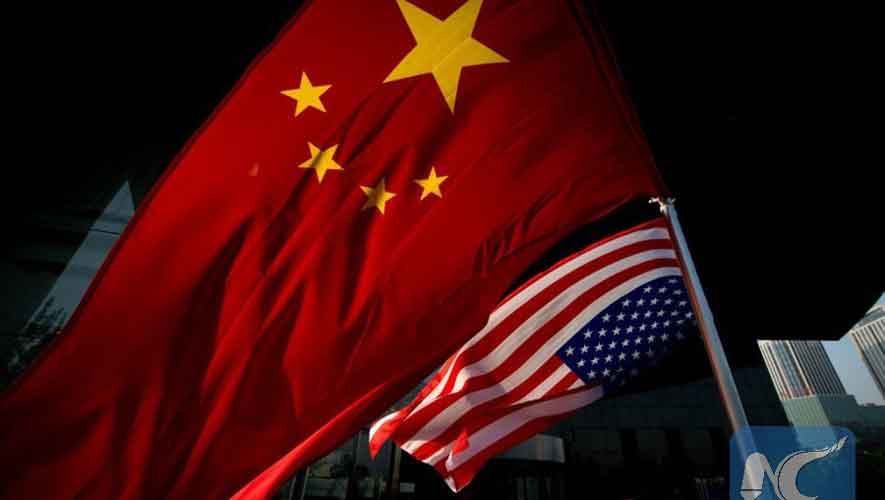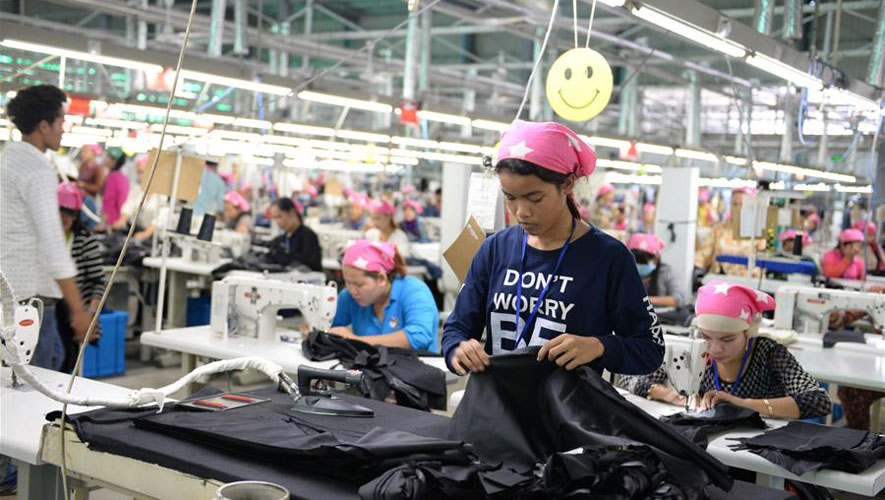Cambodia stands to gain from this trade spillover, with exports to US remaining positive
For the latest Cambodian Business news, visit Khmer Times Business
The extended trade war between the US and China is likely to deal a blow to the world economy particularly the Chinese economy but it is set to be a boon to the Asean region.
According to analysts, China’s exports might collapse early 2019 given the signs of frontloading ahead of the US tariff hike to 25 percent from 10 percent on January 1. Impact estimates from the International Monetary Fund (IMF) and Asian Development Bank (ADB) suggest that a full-blown trade war can shave as much as 1.6 percentage points off China’s gross domestic product (GDP) growth and 0.9 percentage points off US GDP growth annually over the next two years.
Asean would likely continue receiving bounties in the form of foreign direct investments (FDI) from both the US and China. The wave of FDIs in these countries is on the back of many multi-national companies relocating their operations to countries such as Vietnam, Thailand, Cambodia and Malaysia.
Many global companies are rethinking their supply chains and the present trade war presents Asean as an attractive supplementary alternative to the manufacturing base in China, with Vietnam set to take the lion’s share of the investments that is flowing into the country.
Many US multinational companies in China were already thinking of relocating their supply chains from China as the latter becomes a developed economy with a more expensive labour force and tighter environmental regulations. Multinationals that are not in China but serve the Chinese market would likely move to Vietnam, Thailand and Indonesia.
With the escalation of the trade war, finished consumer products such as mobile phones, laptops and other electronic goods as well as apparels are expected to be affected and in order not lose market share in the automotive segment, Chinese manufacturers might have to move to Asian countries. This is imperative for the Chinese automakers not to lose markets in Latin America which often serve as an entry point for its products into the US via Mexico under the NAFTA agreement.
Many analysts add that this would be a reversal of the trend in Asean countries as previously with the emergence of Beijing, many investments from Asean countries had found itself in China, this time around the shift is likely to bolster Asean economies in terms of the local automotive industry, ICT and the apparel sectors.
There are obviously some countries within the Asean that are likely to benefit more from the spillovers from the US-China trade war, notably Cambodia.
Cambodia’s exports to the US in the first nine months of last year grew 27 percent or 2.86 billion compared to the same period in 2017, according to the Census Bureau of US Department of Commerce.
It is also estimated the US exported 322 million worth of goods to United Kingdom, a 12 percent jump in the same period. Analysts say that Cambodian exports to the US would stay positive as Washington increases the price of Chinese goods in the US market.
In addition, Moody’s Investor Services has said that Cambodia is among the East Asian countries that could benefit from the relocation and investment by firms looking to reduce their exposure to US trade policy uncertainty in the face of worsening US-China trade war in 2019.
Travel goods exports to the US such as luggage, backpacks, handbags, and wallets receive zero-tariff rate preferential treatment now.
The impact of changes in the flow of investments into Asean countries would not be felt immediately and would at least take three years before the positive bounties would flow into these countries.
Some of the Asean countries must carry structural reforms and embrace greater transparency in order to usher in greater investments into their respective countries.
Multi-national companies would also need time to draft global and regional strategies, navigate different political and legal landscapes and secure licences and permits for new production facilities. CapCam
Sathish Govind used to work in a think tank in Kuala Lumpur
A Contributing Writer, Capital Cambodia




